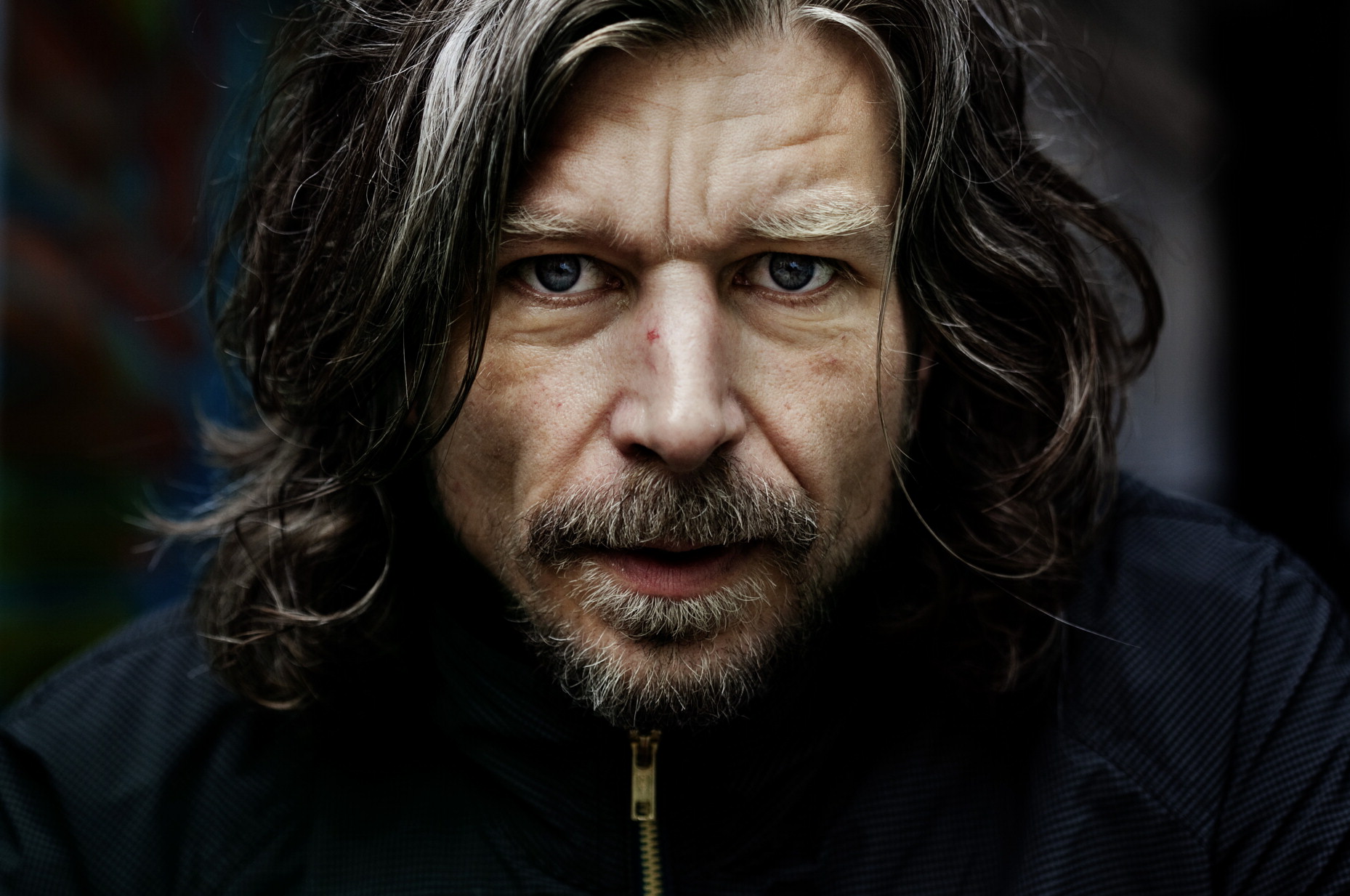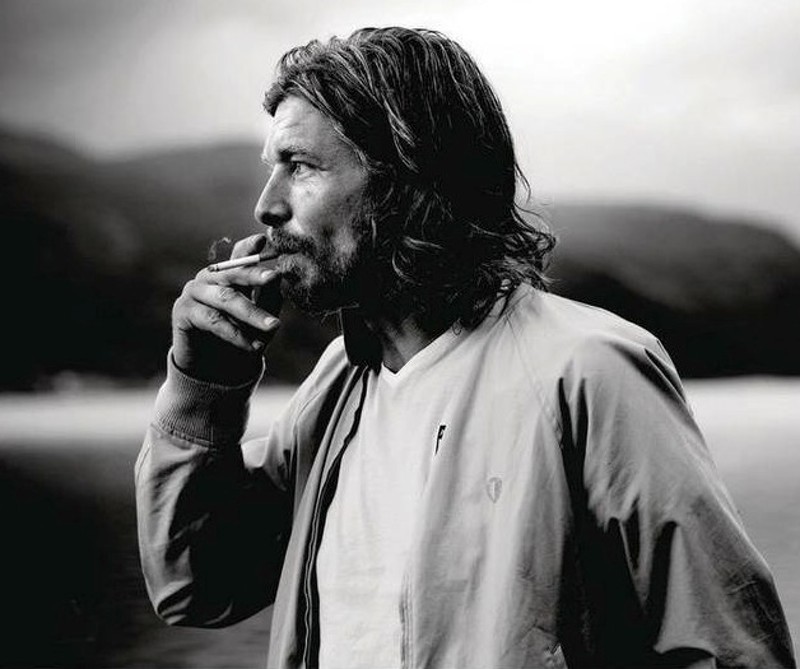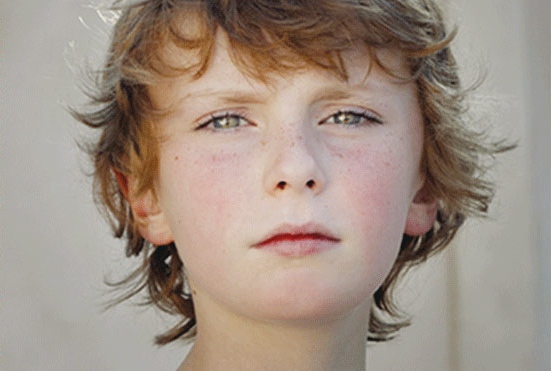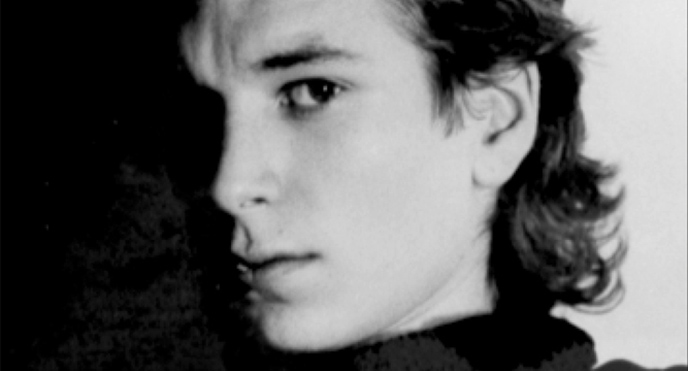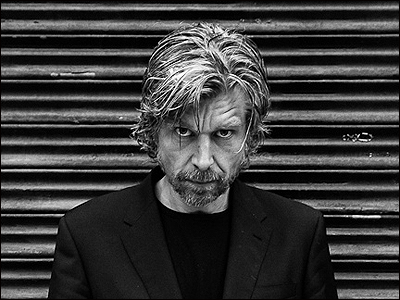My Struggle, vol. 5: Dan, October 13
Wooster, OH
Dear friends,
Thunder woke me at five this morning from a dream about death. I couldn't get back to sleep. I lay there, listened to the rain and thought about us, this project, the Slow Burn, this letter, endings.
In life, I wrote, when we started, I am a connoisseur of distance. Still true. If Ferrante, last summer, elicited friendship, Knausgaard, I thought, would invite intimacy without flesh. Not the lives of two friends, not Lena and Lila, instead one man indulging in exhibitionism. And so: I've written on narcissism, Omari on masturbation, Diana on ego, Cecily on sex scenes. And yet, and still, and now in Book 5, when I was least expecting it, friendship.
Espen is Karl Ove's brilliant friend: poet, scholar, "the kind of person you noticed" (289). Karl Ove notices. He bends his extraordinary powers of observation toward Espen, the way the younger man holds a cup ("not in an embracing kind of way, more a confirmation by his hands, here we have a cup"), how he cooks ("he was as experimental and ingredient-conscious in the kitchen as he was in his poetry"), his interior decorating ("his coffee table consisted of concrete blocks with a board across," "the overall impression when you entered was brilliant") (277, 309, 308). There's heart in these details, a lover's attentiveness.
They play chess, they listen to jazz, but, "most of all, above all else," they talk, they have "endless" conversations, "pushing each other forward" toward ideas they've never had before (310). Love. Karl Ove is happy when Espen's face lights up at something he's said. Love. On their vacation to Prague, Karl Ove follows Espen around and wonders what he's thinking in that enigmatic mind of his. Love.
Later, after Espen moves away, to Oslo, Karl Ove visits "as often as possible" (482). These trips sustain him and deliver him, however briefly, from self-flagellation. Together, "galvanized by the situation and Espen's enthusiasm, suddenly something in the room burst into being, it became a focus, not for me and my self-absorption, my constant sensitivity to what others thought about me, no, what we talked about detached itself from all that, the I disappeared, until the moment was over and we were back sitting on opposite sides of the table, which, somehow, became visible again" (483). Love, love, love!
And yet: Karl Ove takes care not to confuse this love for love love. Always agape, never eros. His other great friend, Tore, early in their friendship, invites him to his home for dinner. Karl Ove thinks it's going to be a party. When he arrives to an intimate candlelit dinner for two, he freaks: "Was he gay?" (469). To his great relief, Tore is not. They go on to talk "all evening, presenting [their] lives to each other, the way you do when you are getting to know someone" (470). Tore, Espen, these sweet, hospitable, thoughtful young men—once homosexual panic is put to rest—open Karl Ove, they transform him into a person we thought he couldn't be.
I think of how Sarah introduced last summer's Slow Burn, writing how she craved those day-into-night, coffee-into-beer conversations where you learn everything about a person in one heady rush. She wrote about violence, about brutish impatience, she matched Ferrante's mood, the explosiveness of Lena's friendship with Lila—remembering this helps me differentiate Karl Ove from those other two old friends of ours. Karl Ove saves the worst violence for himself. (Except, course, that once when he hurled a glass at Yngve's face.) His friends, his male friends, with their small gestures of kindness and their intellectual generosity, bring out a tenderness in Karl Ove. Lena's and Lila's friendship is many things—violent, yes, brutish, a foray into Diana's favorite jealousy, the jealousy of feelings —but it's hardly tender.
And, my god, does Karl Ove need it. He describes these years, these Bergen years, these fourteen years of his life as "a terrible time" during which he "knew so little, had such ambitions, and achieved nothing" (9). (Not entirely true—as Omari points out, he finally achieves something.) Horrifyingly, Karl Ove claims that, during this period, he "never laughed" (78). When Jon Olav pokes fun at him at a party for identifying as a writer, Karl Ove screams, "'What the FUCK do you know about anything? I'm SERIOUS about what I do, do you understand?'" (143).
I've gotta turn to Sarah again, who asked, way back when, regarding Book 2, whether My Struggle were a joke. "Knausgaard, Knausgaard, Knausgaard," she asked, "are you serious??????" She was responding to Karl Ove's callous indifference to the opinion of a cashier because, in his words, she was fat. It seemed, then, that he was taunting us, needling us, daring us to despise him. Or were we supposed to laugh—not at the cashier, but at his absurdity? The tone in Book 5 has changed, but the question of irony remains. Knausgaard threads it through this volume. In Part 1, young Karl Ove, the teenager, repeatedly embarrasses himself in his writing workshop. His failure arrives with full force in the comment of a fellow workshopper who calls his work, in its depiction of women, immature, creepy, entirely lacking in ironic distance. This burns, not least because Karl Ove, shortly before this, believed, "Self-knowledge was the one quality I did have. I knew exactly who I was. Not many of my acquaintances knew as much about themselves" (96). Uh huh.
Knausgaard's not taunting us anymore, he's taunting himself. He tells us this, indirectly, too, via Stephen Dedalus. Weirdly, the first thing Karl Ove first reads of Joyce is his shitty, unfinished early version of A Portrait of the Artist as a Young Man, Stephen Hero. (He's attracted by the title, natch.) He decides that, despite its flaws, "there was something to learn from it, too, how [Joyce] slowly transformed the autobiographical element, which was obvious here, into something else in Ulysses" (434). If, in Stephen Hero, Stephen Dedalus is "distinct from the world around him," in Ulysses, "the world flowed through him" (434).
Hm, ok. Dedalus in all three of Joyce's incarnations is the much too earnest young man who never laughs, who needs to be a writer, who ends up fleeing his country—according to the famous ending of Portrait—"to forge in the smithy of my soul the uncreated conscience of my race." Remind us of anyone? But Knausgaard never mentions Portrait, he gives us Ulysses. My Struggle, despite its encyclopedic ambitions, is nothing like Ulysses. A life, not a day. One style, not many. Accessible, not difficult. Isn't Portrait the better comparison? In which Joyce introduces the ironic distance from Stephen that he lacked in Stephen Hero? Shouldn't this be our lesson, that Knausgaard, like Joyce, has learned to mock his ambitions in the very same gesture with which he announces them? Conscience of my race, lolz. But srsly.
*
Friends, forgive me the non-sequitur, but I'm tired. A few days ago, the weather turned. Autumn arrived on a brisk wind. It's been clouds ever since. Only six weeks into the semester, the slow erosion of my well-being. Pain, the pain that accompanies my academic life, is here again. Sleeping pills, ibuprofen. All I want to eat, inexplicably, is vinegar. All too often I share this feeling with Karl Ove: "Writing was a defeat, it was a humiliation, it was coming face-to-face with yourself and seeing you weren't good enough" (396). Sometimes, a masochist, I love this. Sometimes it just makes me sad.
What I need's an escape, somewhere far away, where I can quit playing professor for a little while. Nothing moved me more in Book 5 than Karl Ove's retreat to his grandparents' farm, "a different world because it was rife with childhood memories, untouched somehow" (155). He goes there to get away from the writing workshop, to go "where no one cared about what I was or what I wasn't" (155). Up there, "I had always been enough for them" (155). The hay barn, the henhouse, the easy acceptance: I know it, I grew up there, too.
My grandpa, Ole Norberg, son of Swedish immigrants, and my grandma, Carlene, lived on a farm in northern Minnesota where we went for holidays when I was growing up. I remember stepping out of the car onto their gravel driveway, Molly, their yellow mutt, there to greet us. Grandma with fresh peanut butter cookies, their tops ridged by the tines of a fork. My little brother and I would run to the henhouse with a basket to gather the eggs. Not Andy, though, my other brother, who believed grandpa when he said that if we looked at the chickens directly they'd peck our eyes out. We caught frogs and raced them, we rode the four-wheeler and went too fast, we climbed the crabapple tree out front and, in the fall, stuffed our mouths with the tart fruit. Best of all, though, was the hay barn. With our cousins, we made forts out of the bales, played king of the mountain. One time Sharlene and I jumped on a bale perched over a hole in the floor and both of us fell through, down into the basement where the cows milled, but I, on the way down, caught my mouth on the floorboards—it scared the hell out of me. I had big buckteeth back then, and after the fall they were loose. I thought I was going to lose them for good. I ran into the house where I hid and cried until grandma found me. I was scared I'd be in trouble for horsing around in the barn, for wrecking my mouth, for trying to hide it. Grandpa, who's mellowed out over the years, was stern and strict and didn't have time for bullshit. But grandma, whose mind, now, has gone the way of dementia, was kind to me, she told me it was fine, I'd be fine, everything was alright.
Oh, it's long gone, that world, which, as it was for Karl Ove, "was so magical for me" (171). My grandparents sold the farm years ago. But the north country, it got inside me, I became an outdoor educator after college, that's how I ended up leading canoe trips, out where I was for Book 3. It's my other life. In a few days I'm going back. My cousin's getting married, I'll see my grandparents, all my family. Then it's farther north, to the tamaracks and the cranberry bogs. I'll hunker among the sphagnum moss with Joe, an old friend, puffing from a tobacco pipe and drinking coffee from a thermos.
It's good there, I feel good there, but if that's the life I wanted I'd have it. Soon enough I always itch again for this, this this this, what we've been up to, thinking with others, with all the pain and shame and solidarity and bliss that comes with it. Letters, god, this has been harder than I expected, and better. Karl Ove: "I wrote letters, they just flowed, sentence after sentence, page after page. Often they consisted of stories about my life, what I'd experienced and what I'd thought. Had I only been able to transfer that feeling, that state of mind, that flow into literary prose, everything would have been fine" (415). Well, hi.
Fitting that My Struggle began as letters, right? The confession as real as the craft, any authenticity a matter of hard work. Old artificer, stand me now and ever in good stead. Right near the end, with his marriage to Tonje unraveling, Knausgaard describes the two of them snuggling up on the sofa, watching a film, Tonje crying, them laughing together. He writes, "There are thousands of such moments, lost the second they occur, yet still present because they are what form a relationship, the particular way we stayed together, which was the same as everyone's, though different, it was her and me, no one else, it was us, we dealt with everything that came at us as well as we could" (608). As with everything he writes, maybe here, out of context, it sounds banal, but after all these thousands of pages it crushed me, this hard-wrought reality from our künstler. My Struggle's an impossible effort to save these quotidian moments against the void, a fantasy, simultaneously a tome and a wisp.
It's over for now. Most of us are, like me, muddy and deep into the semester. Jess, though, is off to the arctic. Jacob has embarked on his own series of open letters. The leaves are coming off the trees. It's long past time.
Karl Ove says that, however much he cares for friends and lovers, Espen, Tore, Tonje, he misses no one when he's away and alone. Still. I will miss him, and you. Till next time.
Yours,
Dan
ALSO IN THIS SERIES:
The Slow Burn, v.2: An Introduction
My Struggle, vol. 1: Cecily, June 6
My Struggle, vol. 1: Diana, June 9
My Struggle, vol. 1: Omari, June 14
My Struggle, vol. 2: Dan, June 17
My Struggle, vol. 2: Omari, June 24
My Struggle, vol. 2: Cecily, July 1
My Struggle, vol. 2: Sarah Chihaya, July 5
My Struggle, vol. 2: Dan, July 12
My Struggle, vol. 2: Diana, July 16
My Struggle, vol. 2: Jess Arndt, July 18
My Struggle, vol. 3: Omari, July 25
My Struggle, vol. 3: Ari M. Brostoff, August 1
My Struggle, vol. 3: Dan, August 4
My Struggle, vol. 3: Jacob Brogan, August 8My Struggle, vol. 3: Diana, August 12
My Struggle, vol. 4: Katherine Hill, August 25
My Struggle, vol. 4: Omari, September 1
My Struggle, vol. 4: Dan, September 2
My Struggle, vol. 4: Diana, September 15
My Struggle, vol. 5: Omari, September 27
My Struggle, vol. 5: Diana, October 3

